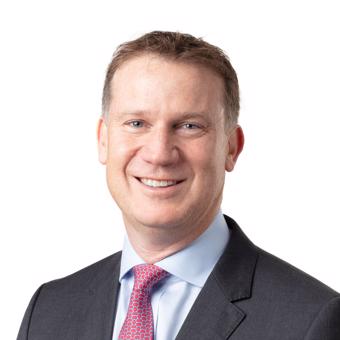James O’Connell, head of policy at The Institute of Paralegals...
James, can you tell readers of The Brief a bit about The IOP?
The IOP is a not-for-profit and government approved institute. It is by far the largest body representing paralegals in the UK and it also has a considerable number of overseas members. Its role is to become the legal equivalent of the Royal College of Nursing, that is to say, its focus is on professionalising paralegals and ensuring that being a paralegal is a career in its own right. Not every nurse is an aspiring doctor and most paralegals are not aspiring solicitors.
What do you think is the Institute’s main role/ function in today’s legal landscape?
At present we are focusing on four main goals:
1. Helping to create a practical and nationally consistent qualifications framework so that paralegals and their employers can get nationally-recognised paralegal training and qualifications. Right now we think paralegals and their employers are not getting value for money;
2. Creating competency standards so that paralegals and their employers can have national benchmarks of what to expect, and what should be expected, at the different stages of a paralegal’s career;
3. Working with employers to provide a careers path for their paralegals which does not ignite unrealistic/unobtainable expectations;
4. Assisting those paralegal businesses who want to offer a professional, ethical and competent service.
Do you think attitudes have changed towards paralegals since the advent of the Legal Services Act?
Only to a small degree. A major re-evaluation of paralegals has been underway for about three years now and it is still on-going. However, this has been driven mostly by the tougher commercial environment rather than legislation. The Act merely sped up a change which the market had already dictated.
Why is that?
To use a medical analogy, when the economic crisis hit in 2008, it was no longer sustainable to use doctors to do nursing work. That coincided with the evaporation of the old notion that only a solicitor should do legal work, no matter how petty. As a third factor, firms were increasingly aware that the traditional career route of trainee - assistant – partner was unrealisable for an increasing number of assistants. Finally, many firms seem to feel that the SRA was overzealous in its regulation of solicitors; a burden from which paralegals are largely free – currently, at least.
There is a perception that the Act spawned numerous paralegal businesses (will writers, etc). However, this is incorrect as there were numerous paralegal businesses before the Act and the number has just kept growing. That growth has largely mirrored the retreat of solicitors from a number of non-reserved activities where they found it increasingly difficult to provide a service at profit.
How do you see the sector/ market changing over the next five years?
That is a tough question given that major changes seem to be occurring all the time. A few things are clear though; the first is that there is no one sector/market. It only appeared to be one sector/market because one type of provider (solicitors) had a lock on that market. You cannot really understand the market until you look at the customers rather than the providers. To that extent, the fragmentation of the “false” market will continue. I would not be surprised if eventually some firms doing non-reserved activity work felt that the cost of the solicitor brand (through regulation, liability, etc .) outweighed the benefits and cease to be solicitor firms. I think ABSs offer, at least partially, that process happening in slow-motion.
The status and role of paralegals will change for the better. In many firms, paralegals will become the main group of fee earners. At that point, firms will take more care about finding, retaining and motivating the best paralegal talent. I would also expect to see major changes in legal education as most university law schools are not law schools; they are solicitor training schools. Increasingly, we will see individual law schools attempt to survive and thrive by overtly catering to other groups of legal practitioner beside solicitors. The attrition of the high street firm/ general practitioner will also continue apace. Finally, we think that regulators are likely to start actually regulating paralegals working in solicitors’ firms.
Can you see the Institute’s work changing to reflect this next phase of evolution?
Yes, on two fronts. As the legal equivalent of the Royal College of Nursing (I stress we do not compare or equate ourselves to that body, we aim to emulate it one day) we would expect to have a statutorily underpinned regulatory role at some point. We would also be much more involved in lobbying government, the judiciary, etc to win more formal recognition of paralegals.
What do you think are the main challenges your members currently face?
Being at the cutting-edge can be very exciting but frequently uncomfortable. Many are doing high-level legal work yet lack due recognition within the legal profession and so face confusion outside of it. Generally speaking, the public still think only solicitors and barristers offer legal services. By way of example, we were contacted recently by one of Her Majesty’s prisons because a paralegal adviser wanted to meet with an inmate. Not having come across paralegals previously, the prison authorities were not sure whether they were obliged to give access or not, and on what basis.
The other main challenge many of our members face is poor pay and poor career prospects. Paralegals are indeed much cheaper than trainees/ solicitors, but some firms offer truly abysmal pay and conditions.
Overall, the biggest challenge is bringing some order to the chaos. “Paralegal” is a catch-all, default term for any unregulated legal practitioner. It is impossible to give formal recognition to such an unbounded group. We need to create a defined group of legal practitioners with proven core competencies and who work under an enforceable code of conduct. That is the group to whom recognition could be given.
On the flip side, what do you think will be growth areas/ opportunities?
We are rapidly moving away from the era of labels, e.g. you have the label “solicitor” and therefore you can do everything, to the era of ability; i.e. are you good enough to run a legal practice, regardless of what label you work under. ABSs are the most high-profile example of that. The best paralegals will thrive.
The key growth areas for paralegals are those where a safe and credible expertise can be gained without the need to undertake the solicitor’s training route. This will tend to mean paralegals will thrive in process driven areas of law and less so in the more complex or cutting edge areas where each case is very different. Paralegals will also thrive in-house.
What will be the main implications for paralegals and your membership?
For paralegals generally... just greater career options. For our members... a career - and career options - with a decent wage and professional respect.
Finally, any words of wisdom for any readers who are considering pursuing a career as a paralegal?
It is possible, it is achievable and things are only going to get better.
http://www.theiop.org/









